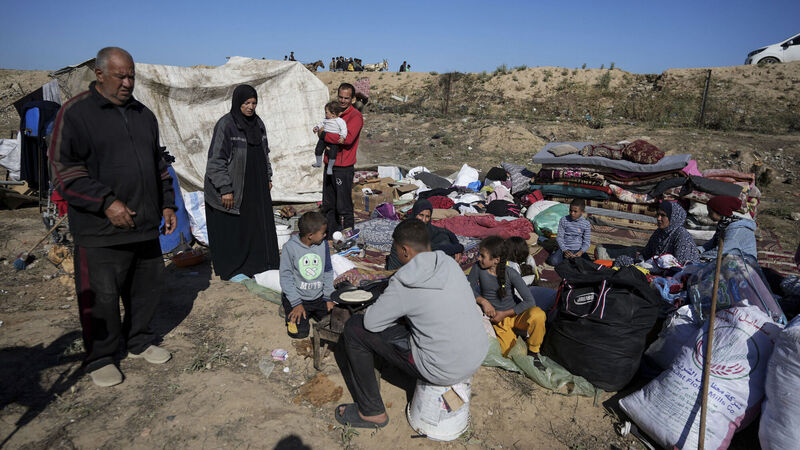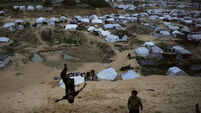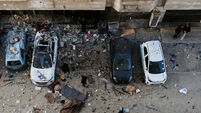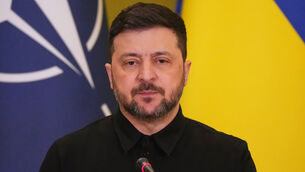Gaza’s last hospital at risk of collapse due to Rafah crossing closure

Displaced Palestinians arrive in central Gaza after fleeing from the southern Gaza city of Rafah in Deir al Balah, Gaza Strip. Picture: AP Photo/Abdel Kareem Hana
Gaza's last remaining major hospital is at critical risk of collapsing as the Rafah crossing closure has blocked fuel from entering which is needed to run the hospital’s generators, a UK surgeon recently returned from Gaza has warned.
Patients are emaciated, many have amputated limbs after bomb blasts, and are already quick to develop infections and bed sores with the lack of basic antibiotics, painkillers, and food in the European Hospital, Mr Juni Sultan, a vascular surgeon who works in the UK said.














